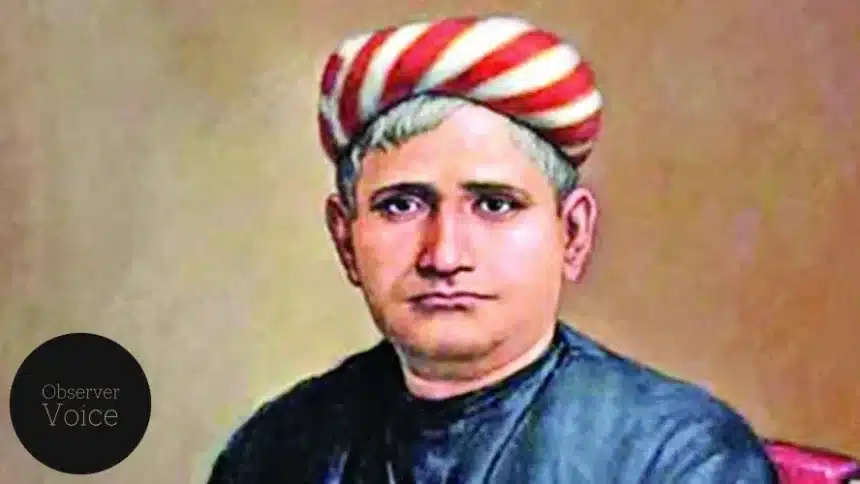Bankim Chandra Chatterjee (27 June 1838 – 8 April 1894) was an Indian novelist, poet and journalist. He is known as Sahitya Samrat (Emperor of Literature) in Bengali
Early Life
Bankim Chandra Chatterjee was born on 27 June 1838, in West Bengal, India. His father was a notable Deputy Collector of Midnapur.
He got his education at the Hooghly Mohsin College, founded by Muhammad Mohsin. In 1857, he graduated with a bachelor’s degree in Law from the Presidency College.
Career
He got appointed as Deputy Collector after he finished his law studies. After serving the British for almost thirty-two years, he became a Deputy Magistrate and retired in 1891.
He was fond of writing and began his literary journey as a verse writer, just like his idol Ishwarchandra Gupta. After he realized he could write well, he turned to fiction. In his first writing, he wrote a novella for a contest. He didn’t win the competition and the novella never got published.
He published his first novel, Rajmohan’s Wife, in English. In 1865, he published Durgeshnandini, his first Bengali romance and the first ever Bengali novel. After that, he published ‘Kapalkundala’, his first big book. It made him a writer.
Mrinalini came out in 1869, when Bankim attempted to write a story that was set in a historical context. Later, he published a literary magazine called Bangadarshan.
Chandrashekhar came out in 1877. He also wrote ‘Rajani‘ in the same year.
In 1882, Bankim wrote a political novel called Anandamath (The Abbey of Bliss). Indian nationalism vs. the British was the theme. Vande Mataram, the national song of India, comes from this book.
Others works that Bankim published in his lifetime were: ‘Lok Rahasya (1874)’, ‘Bichitra Prabandha (1876)’, ‘Devi Chaudhurani (1884)’, ‘Kamalakanta (1885)’, ‘Sitaram (1887)’, ‘Muchiram Gurer Jivancharita’, ‘Krishna Charitra (1886)’, ‘Dharmatattva (1886)’, etc.
Death
He died on 8 April 1894, in Kolkata, West Bengal, India.

